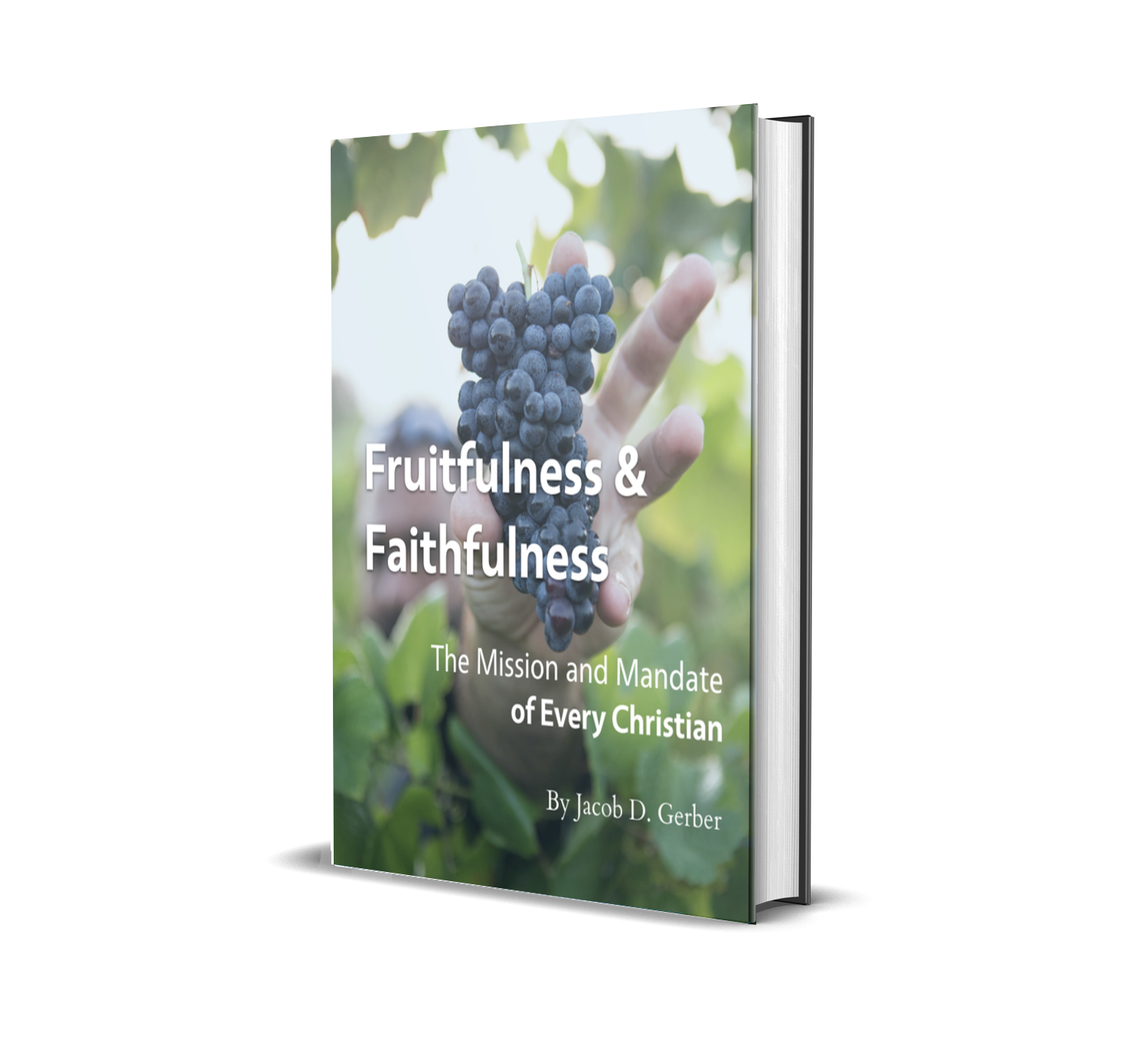Don’t Call Them “Members” of the Trinity: On Union with God and Others
Christians believe in one God who exists in three persons: God the Father, God the Son, and God the Holy Spirit. The Westminster Larger Catechism helpfully summarizes the one-ness and the three-ness of our doctrine of the Trinity in questions 8–9:
Q. 8. Are there more Gods than one?
A. There is but one only, the living and true God.Q. 9. How many persons are there in the Godhead?
A. There be three persons in the Godhead, the Father, the Son, and the Holy Ghost; and these three are one true, eternal God, the same in substance, equal in power and glory; although distinguished by their personal properties.
Sometimes, however, well-meaning Christians refer to the three persons in the Godhead as “members” of the Trinity. As much as members may seem like a good substitute for the word persons, the two terms have very different meanings.
God’s Unity in Three Persons
To understand the difference between these two terms, we have to understand how God’s unity as three persons differs from our unity with other people and our unity with God. To evaluate different kinds of unity, we need to consider three criteria: distinctions, differences, and divisions.
Distinctions in God
By distinctions, we simply mean that one person can be distinguished from another. In the Godhead, the Father, the Son, and the Holy Spirit are “distinguished by their personal properties” (WLC #9).
This is important, since the heresy of modalism (or Sabellianism) teaches that the Father, the Son, and the Holy Spirit are not actually different persons. Instead, modalism argues that the one person of God appears sometimes as Father, other times as Son, and still other times as the Holy Spirit.
Against this, true Christian theology argues that the Father, the Son, and the Holy Spirit are three distinct persons. Westminster Larger Catechism question #10 explains the distinctions in terms of the relationships of the persons to each other:
Q. 10. What are the personal properties of the three persons in the Godhead?
A. It is proper to the Father to beget the Son, and to the Son to be begotten of the Father, and to the Holy Ghost to proceed from the Father and the Son from all eternity.
(No) Differences in God
While we maintain that there are distinctions between the persons of the Godhead, we deny that there are differences between the three persons. As we read earlier, “these three [persons] are one true, eternal God, the same in substance, equal in power and glory” (WLC #9).
Thus, the Father, the Son, and the Holy Spirit share the same identity as one God, the same divine substance (i.e., nature), and the same attributes—even as they retain their distinctions from one another.
While modalism wrongly overemphasizes the one-ness of God, it would also be a mistake to overemphasize the three-ness of God by arguing for differences between the three persons. If the three persons were different from one another (rather than simply being distinct from one another), we would have three gods, not one God.
(No) Divisions in God
By recognizing distinctions in God (but not differences), we recognize the three-ness of God. Yet, we must also maintain the one-ness of God—not by eliminating distinctions, but by recognizing that there is no division between the three persons of the Trinity. They exist eternally in perfect unity, harmony, and love.
Accordingly, the Westminster Confession of Faith declares that God is “without…parts” (WCF 2.1). Theologically, we confess that God is simple—not meaning that he is limited and finite, but rather that he is not composed of different parts.
Even the three persons are not three parts that combine to form one God. That would be the heresy of partialism, which denies the unity of God by declaring that there are three components within the one God—one-third Father, one-third Son, and one-third Holy Spirit.
On the contrary, the three persons are one God who share a single, undivided substance.
Human Unity with Others and with God
Human beings also have unity with other humans, especially in marriage and in the church. In marriage, two people become one flesh (Gen. 2:24). In the church, many different people become the various members (i.e., limbs and organs) of the one body of Christ (cf. Rom. 12:4–5; 1 Cor. 12:12). Also, human beings may have union with God through Christ and by the Holy Spirit.
These human unions are similar to the unity that the three persons of the Trinity share in the Godhead. Nevertheless, these human unions have significant differences from God’s unity with himself. Again, the criteria of distinctions, differences, and divisions are helpful to understand human unity.
Distinctions from other Humans and from God
Similarly to the distinctions of persons in God, human beings remain distinct from one another, even in the union of marriage and union within the church. Although a husband and wife become one flesh with each other (Gen. 2:24), and although Christians become “individually members one of another” in the church (Rom. 12:5), we remain distinct people.
Furthermore, human beings maintain distinction from God. We are distinguished from God as the temples in whom God dwells by his Holy Spirit (1 Cor. 3:16; 6:19). We do not, however, become “one” with God, as though our distinct identity were dissolved and absorbed into God. That is the pagan notion of pantheism, not Christianity.
Differences from other Humans and from God
In addition to being distinct from other humans and from God, we are also different from other humans and from God. The difference is easy to recognize in our relationship to God, since we creatures could never become the Creator. This is the primary difference between God’s unity with himself and our unity with him and with each other—the three persons of the Trinity have no differences, while we always retain our differences from each other.
In marriage, we also clearly recognize the differences between male and female, husband and wife (Gen. 1:27; 2:24). The differences between a husband and his wife cause Paul to give different instructions to each spouse, where each represents a different aspect of Christ’s relationship to the church (Eph. 5:22–33).
In the church, we also recognize differences between the various members of the church: “For as in one body we have many members, and the members do not all have the same function, so we, though many, are one body in Christ, and individually members one of another” (Rom. 12:4–5).
This diversity is essential within the body of Christ:
[17] If the whole body were an eye, where would be the sense of hearing? If the whole body were an ear, where would be the sense of smell? [18] But as it is, God arranged the members in the body, each one of them, as he chose. [19] If all were a single member, where would the body be? [20] As it is, there are many parts, yet one body. (1 Cor. 12:17–20)
Without the differences among the various members, Christ’s body would not have its variety of functions.
(No) Divisions from other Humans or from God
The significance of our true unity, then, is not that it eliminates either distinctions or differences. Instead, we experience true unity when God removes the divisions. In our relationship with God, we become are “in Christ” as members of his body. Furthermore, God fits our bodies to become temples of the Holy Spirit (1 Cor. 6:19).
This union is so undivided that the Apostle Peter can rightly describe us as “partakers of the divine nature” (2 Pet. 1:4). Again, this does not mean that we become dissolved into God (for we retain our distinctions from him), or that we become God (for we retain our differences from him). Instead, through Christ and by the indwelling presence of the Holy Spirit, God removes all divisions between us and him.
This intimate union is most closely depicted in the human union of marriage. Indeed, Paul tells us that the whole reason a man must hold fast/join/cling/cleave to his wife, becoming one flesh with her, is to reflect a profound mystery: “This mystery is profound, and I am saying that it refers to Christ and the church” (Eph. 5:32). Husbands are distinct and different from their wives, but there are no divisions between the two. They are one flesh and one body (Eph. 5:23, 28–30; cf. 1 Cor. 6:16).
Even in the church, God describes our relationships to one another as retaining no divisions: “…so we, though many, are one body in Christ, and individually members one of another” (Rom. 12:5). While sexual intimacy is reserved for the marriage union between one man and one woman alone, every member of the church is otherwise united to each other as “members one of another.”
Don’t Call Them “Members” of the Trinity
After this survey, we can finally see the difference between the tri-personal unity of God and the unity between humans and God, or humans with each other. The unity of the three persons of the Godhead includes distinctions, but no differences or divisions. The unity of human beings with God, or human beings with each other (whether in marriage or in the church), on the other hand, retains distinctions and differences, but eliminates divisions.
These two different kinds of unity give rise to two different terms. When we speak of the persons of the Trinity, we are describing persons who are distinct from one another, but neither different nor divided from each other.
When we speak, however, of members of a body (whether the body of Christ or the one-flesh body of marriage), we are describing members who are distinct and different from one another, but who exist in a relationship without division. To refer to the persons of the Trinity as though they were members of the Trinity is to confuse categories.
More seriously, since the biblical definition of “members” includes differences, talking about the “members” of the Trinity suggests that the persons are somehow different from each other. As we mentioned earlier, if the three persons are not “one true, eternal God, the same in substance, equal in power and glory,” then we do not have one God, but three gods.
God’s unity with himself is similar to, but different from, our unity with him and our unity with each other. To reflect these different kinds of unity, it is critical that we maintain the different language of persons and members.
FREE eBook: Fruitfulness and Faithfulness: God’s Mission and Mandate of Every Christian
Grow in God’s Plan for Your Fruitfulness and Faithfulness

Invest Your Life Well
Discover God’s breathtaking vision for the fruitfulness of his people.
Learn how to live fruitfully and faithfully in the kingdom of Jesus.
Download the free eBook now.
Get the eBook
Bonus: You’ll also get a discipleship assessment tool to evaluate areas for you to grow in fruitfulness and faithfulness.




